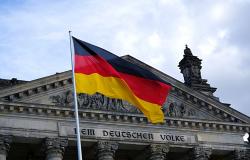Rebooting Germany’s Foreign Policy Towards China

After Germany’s geopolitical awakening to the threat posed by Russia, would it also reconsider its foreign policy on China?
It has taken a full-blown war between Russia and Ukraine to create the long-awaited Zeitenwende in Germany’s foreign policy. Olaf Scholz is to be credited for his decisive leadership; without it, and without the backing of the Greens, perhaps even war on Europe’s borders might not have sufficed as a wake-up call. But even as Germany tries to reduce its dependence on Russia for energy purposes and beefs up its defence capabilities, the urgent question arises: Will this European giant finally also take a cold, hard look at the threat posed by China?
Excuses, excuses…
The excuses to look the other way are many. Indeed, for some, the reasons to be wary of a fundamental shift in Germany’s China policy have only increased. China is seemingly further away, at least in terms of physical distance (though ironically, well within Germany’s borders and increasingly embedding itself in its digital and physical infrastructure projects), and it would be foolhardy to confront China when its resources are already embroiled in the Russia-Ukraine war. Besides, there is already nervousness within Germany about the rise in energy costs deriving from it taking a firm stance on Russia; can it really afford to open up another front of economic warfare with China, which is the EU’s largest partner for imports? Far better to keep China sweet, rather than drive Russia and China together even closer—so goes the argument. The EU’s Foreign Policy Chief, Josep Borrell, has even gone so far as to argue that although he sees no role for the EU in this task, China would be well-placed to mediate between Russia and Ukraine.
It would, indeed, be unwise to poke and provoke China for the sake of it. And yes, Germany should be highly cognizant of the fact that China is not Russia. But failing to credibly signal Germany’s and Europe’s red-lines to China risks repeating the mistakes it has already made with Russia. The continued pursuit of deeper economic ties with China (given not only the blatant abuse of human rights in Xinjiang, but also the PRC’s adventurism in its democratic neighbourhood) today is the opposite of a credible signal. To build its foreign policy and economic strategy on a rosy expectation that China will ultimately see the light on Russia will just not suffice. Instead, three important steps will be key.
Next Steps
First, call it decoupling or diversification, but it is essential that Germany builds more reliable supply chains with trusted partners (and bolsters its own domestic capacity), especially in strategically important sectors. This needs to happen, irrespective of what position China adopts with reference to Ukraine. The days of pursuing economic integration as a goal in its own right, or even as a route to peace, are now long gone. Germany’s dependence on Russian energy led to considerable foot-dragging; it should not make itself more vulnerable to weaponised interdependence by China and repeat that sorry drama.
Second, it is a credit to the coalition government in Germany that it is placing considerable emphasis on value-oriented diplomacy. China has long had a choice, and it has consistently chosen illiberal values. Europe has indulged authoritarian states long enough under the feeble hope of Wandel durch Handel (change through trade). Germany and its European partners should now be making a clear choice: To enter into trade deals with like-minded democracies, that will enhance not only shared values on pluralism and rule of law, but also contribute to enhanced security.
Third, research will have a key role to play in guiding the next steps. There is a tendency in Germany to focus on understanding China better (including its strategic thinking and domestic priorities)—and this will no doubt continue to be important. However, much more investment and interest needs to go into understanding the politics, economics, and cultures of the rest of Asia (and especially democratic Asia). India’s fence-setting on Russia and Ukraine may perhaps have played out differently had Germany and Europe been paying greater attention to the linkages between regional and global balances of power. India’s dependence on Russia for military supplies is well-known; helping India diversify over the last decade could have enabled it to take a clear line in favour of Ukraine and democracy now.[2] By focusing overwhelmingly on China, and ignoring other actors in the region, Germany and its European partners are failing to harness the full scale of old friendships and new alliances.
Even as Germany focuses on the conflict on its border, it is extremely important that it does not lose sight of the growing threat in Asia. At its best, a strategy of credible signalling by Germany (which would include closer economic and military cooperation with Asian democracies) may help deter China and restore balance in the region (and thereby, also globally). At a minimum, it would improve economic resilience and security of Europe and its partners, and help prepare for possible eventualities in the future.
Professor Amrita Narlikar is the President of the German Institute for Global and Area Studies (GIGA), Honorary Fellow of Darwin College (University of Cambridge), and Non-Resident Senior Fellow at the Observer Researcher Foundation.
This first appeared on the ORF.
Photo by Ingo Joseph
Notes
[1] The author thanks Samir Saran and Guntram Wolff for helpful comments on an earlier draft, and Mikko Huotari and Stefan Mair for interesting exchanges on the topic.
[2] Instead, we have created impossible lose-lose situation for both India and the West. The West lost an important democratic ally at the UNSC that should have voted against the invasion of Ukraine; India, by siding with its long-time partner Russia, may now have shot itself in the foot, given the “no-limits” partnership that Russia signed with China in February.


